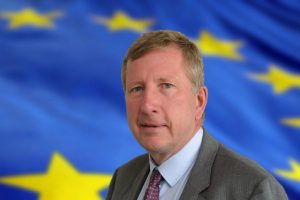From 26 – 29 September, the 25th anniversary edition of the European Health Forum Gastein (EHFG) convened over 150 speakers, spanning the World Health Organization (WHO), European Union (EU), country officials, industry representatives, healthcare professionals, and civil society actors. Permacrisis, European Health Union, Well-being, and One Health were the buzz words of this year’s hybrid edition, which saw diverse stakeholder panels engage in lively discussions examining how a true European Health Union can offer solutions to the many challenges facing the continent.
The 25th anniversary edition of the European Health Forum Gastein (EHFG), held under the patronage of the Austrian Federal President Alexander Van der Bellen, concluded on 29 September with health policy experts agreeing that a true European Health Union is indeed the bold new approach needed to help restore the equity, solidarity, and trust that has been called into question repeatedly over recent years.
“A moonshot for a true European Health Union – if not now, when?” was the broad theme which set the scene for forward-looking and solution-oriented discussions at the EHFG’s first hybrid edition. Ministers and high-level representatives from European Union Member States as well as from the World Health Organization, the European Commission, and the European Parliament reaffirmed that only through implementation of concrete and sustainable new approaches at all policy levels can the current momentum for health be realised. They shared their aspirations for the EU Global Health Strategy, discussed the meaning of a One Health approach for different stakeholders, debated the role that innovation can play in realising – and sustaining – a true European Health Union. The experts considered how to deepen and advance collaborative efforts to improve access to novel medicines, and explored practical approaches to shifting how we understand and build societal health and prosperity, by looking beyond economic growth to collective well-being and environmental sustainability.

In the final conference plenary, EU Representatives discussed the extended mandates of the European Medicines Agency (EMA) and the European Centre for Disease Prevention and Control (ECDC), both now playing a stronger role in supporting the EU and its Member States in the prevention and control of communicable disease threats – and the development of the Health Emergency and Response Authority (HERA). Pierre Delsaux, EC Director-General for Health Emergency Preparedness and Response advocated for more collaboration: “One of the key lessons of the COVID-19 pandemic is that Member States in isolation are not able to cope with a real crisis. We need to continue the effort to integrate, we need to continue the effort to work together.”
Mariana Mazzucato, Chair of the WHO Council on the Economics of Health for All and Founding Director of the UCL Institute for Innovation & Public Purpose, University College London, emphasised that our moonshot should be a mission to reorient the economy around “health for all” principles. “Mission-thinking requires leadership – and in democratically elected societies this must come from governments. The Apollo mission taught us that to get to the moon and back governments cannot do these missions alone – it requires opening up that ‘sandboxing space’ to different actors and using all the levers.”

Indeed, a European Health Union should focus on all other areas of life that influence our health – from the economic system to the social system and the environment, agreed Milka Sokolović, Director General of the European Public Health Alliance. She highlighted that the EU tends to operate in crises and health seems to recede as a political priority without one. “We are blinded by the daily politics and by the economic interest and we chose to keep our eyes shut before the facts that our economic systems are still driven by profit and that inequalities are growing at a catastrophic rate.” Reflecting on the Forum, President of the EHFG, Clemens Martin Auer conveyed a notion of optimism. “When we talk about the moonshot to the EU Health Union, it has to be tangible. Together we are smarter and stronger. We have to believe in science, in rational discourse, and then we are safe. Together, we can manage the permacrisis, even if it is painful and long.”
About European Health Forum Gastein
The European Health Forum Gastein (EHFG) was founded in 1998 as a European health policy conference. It aims to provide a platform for all stakeholders from the fields of public health and beyond. Over the past 25 years, the EHFG has established itself as an indispensable institution in the scope of European health policy. It has made a decisive contribution to the development of guidelines and above all the cross-border exchange of experience, information, and cooperation. Leading experts traditionally participate in the annual conference held in the Gastein Valley in the Austrian Alps in late September.
